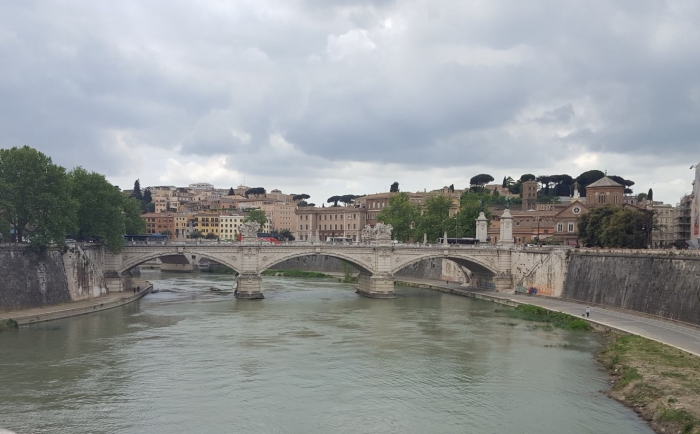I appreciate this poem because Horace here points to the influence chance, personified in Fortuna, has on the lives of everyone. He examines anxieties common to everyone, especially those living in a period of political unrest as Horace was. Also, as an English major and a writer, I appreciate Horace’s imagery in this passage; he is a wordsmith, masterfully employing language to evoke the picture of Jupiter wreaking havoc on the natural world.
Deanna Kalian
As long as I wander,
a scant and infrequent worshipper of the gods,
deliberating insane wisdom,
now I am forced to set sail
and return to abandoned courses:
for Jupiter, dividing the clouds with flashing fire,
drove thundering horses and his swift chariot
away through the sky,
by which the heavy earth and wandering rivers,
by which the Styx and horrid seat of hated Taenarus
and the summit of Atlas’ mountain is shaken.
The god is powerful to change the highest with the lowest
and diminish the distinguished,
bringing forth the obscure;
greedy Fortune, with a sharp shrill,
carries away the crown from there,
and delights to place it here.
Translation by Deanna Kalian
Parcus deorum cultor et infrequens,
insanientis dum sapientiae
consultus erro, nunc retrorsum
vela dare atque iterare cursus
cogor relictos: namque Diespiter,
igni corusco nubila dividens
plerumque, per purum tonantis
egit equos volucremque currum
quo bruta tellus et vaga flumina,
quo Styx et invisi horrida Taenari
sedes Atlanteusque finis
concutitur. valet ima summis
mutare et insignem attenuat deus
obscura promens; hinc apicem rapax:
Fortuna cum stridore acuto
sustulit, hic posuisse gaudet.


No Comments